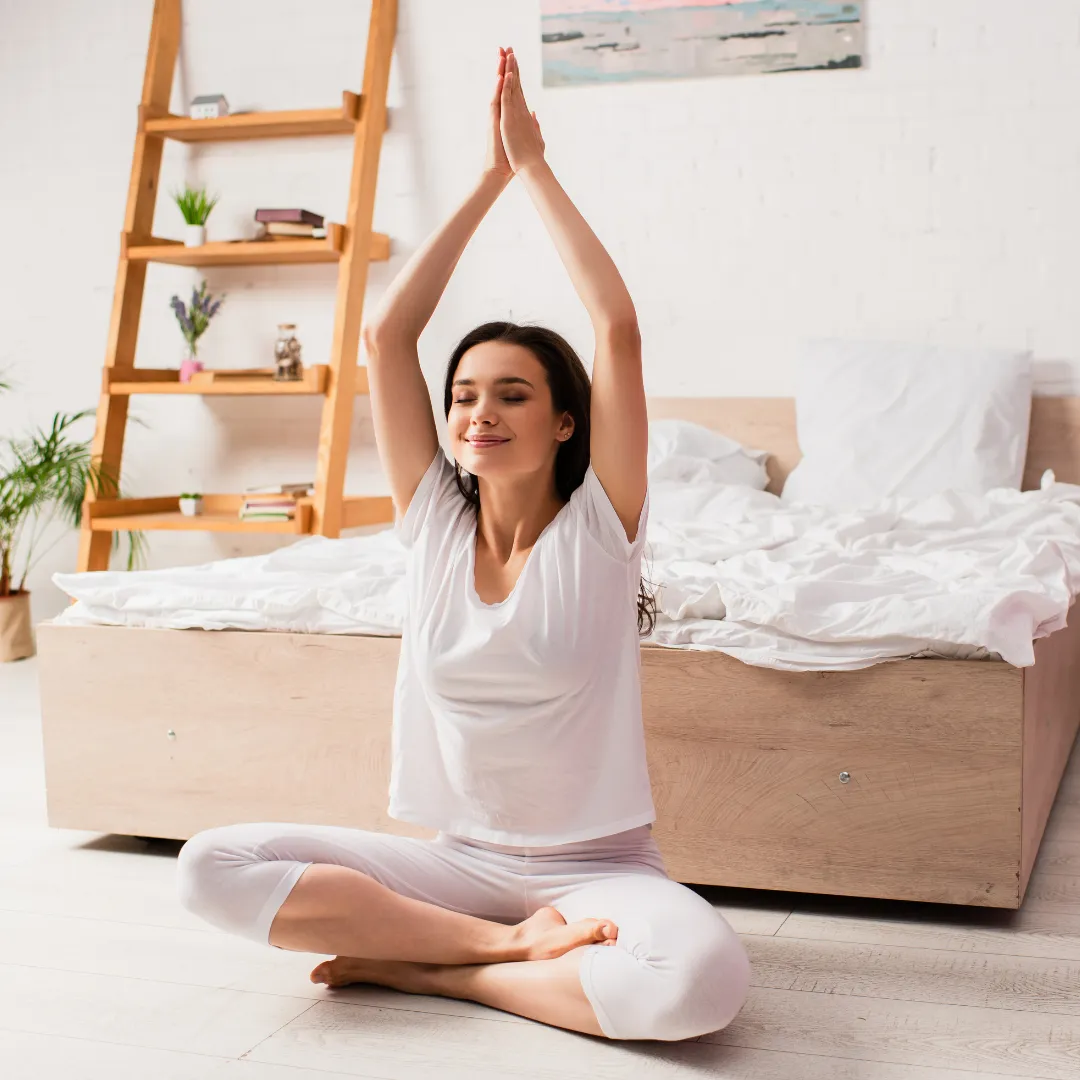BLOG
Taking back control, one day at a time

The Importance of Self-Care in a Busy World
The importance of self-care is essential when taking care of ourselves. It has been said plenty of times that "self-care isn't selfish, it's necessary".
There are different types of self-care, but the basis of self-care is all the same. It refers to us intentionally devoting time and effort to specific areas of our lives to maintain our wellbeing.
This post is about the benefits of self-care, the different types, and the importance of a self-care plan.

The Importance of Self-Care
5 Benefits of self-care
There are plenty reasons why self-care is important to our wellbeing. It is something we have to practice and out into motion.
Sometimes it can be very easy to go about our everyday lives and not be intentional about how we take care of ourselves. This accounts for some of the reasons we sometimes feel awful, and we can't pinpoint why we feel that way. But implementing regular self-care can improve our lives.
1. You'll be the better version of yourself
Practicing self-care on a regular basis will help you to be or become a better version of yourself. When you take care of yourself, you're able to function to best of your abilities. You'll be able to think much more clearly and feel physically better.
This is specifically for my helpers out there (caregivers and people who usually help others). Taking care of yourself is not a selfish act! Sometimes we get so caught up in helping and caring for others we put ourselves on the backburner. You too are important!
Now I'm speaking to that anxiety filled voice in the front of your mind. Practicing self-care should not make you feel guilty. You have nothing to be guilty about. You are human, embrace it. When guilt attempts to sneak in, just remember, you cannot pour from an empty cup. You cannot give to others, what you don't have.
So, take care of yourself. Doing so, will allow you to have more energy and ability to be helpful to those around you.
2. You'll have better connections with others
As previously stated, when you take care of yourself, you'll be more helpful to others. It is significantly harder to work, parent, or be the best partner/friend you can be when you're not operating at your best.
It's not realistic that you will always operate at your best, but through acts of self-care you can operate close to it. When you are at your best, you will be more present in your relationships. You'll find that you will have more patience with others. It is also likely that you'll have less conflict with people.
3. You'll experience more pleasant emotions
Through regular acts of self-care, you will find yourself more likely to feel happiness. When the different areas of self-care are practiced, you will discover more patience and acceptance in others.
Your threshold for feeling irritated will increase. That means you'll be able to tolerate annoying or unpleasant experiences longer, without feeling as irritated.
With your newly found tolerance, you may find yourself less likely to have issues with others as well. You may also find it easier to function and sleep better.
4. You're demonstrating self-love
When we take care of ourselves, it is a practice that we perform. And with that practice, we are showing self-love to ourselves. You, just like everyone else is deserving of love, especially self-love. In a world where there are billions of people, there is no one like you. That alone, makes you special.
It is vital that you be you. In order for you to be the best version of you, you have to be well in the different areas in your life. Sometimes we talk ourselves out of doing for ourselves but just remember, that's probably just your anxiety talking.
5. You'll live a life of less stress
Considering everything previously said, there is great importance of self-care. It is ideal that you'll be able to function as a better version of yourself. Connect with others on a deeper level and be happier. Along with demonstrating self-love, this is an amazing recipe for living a life of less stress.
Reducing stress in a stressful world is key to living better quality lives. Stress contributes to having high inflammatory lifestyles that brew sickness, pain, depression and anxiety. So, do yourself a favor and make acts of self-care part of your regular lifestyle.

Different types of self-care
During the height of the pandemic, it seems that everyone was talking about self-care. There was a lot of hype regarding Self-Care Sundays. While that is all good and I do think it can be beneficial to have a day or a specific time dedicated to self-care, that's not always feasible.
During that time, the pace of life was slower so there was more time available to care for ourselves. And now that most of us are going about life as we did prior to the pandemic, there may be less time to take care of ourselves. But it is still important to take time to care for ourseives.
When looking up ideas of self-care, I found a lot of videos of long bubble baths, facials, and many things that only catered to the physical side of self-care. There are other areas of self-care that go beyond physical self-care. I will discuss 7 different areas of self-care: physical, emotional, mental, social, spiritual, professional, and financial.
1. Physical Self-Care
Physical self-care is the act of taking care of your physical body and physical wellbeing. Examples of physical self-care is getting enough rest, resting when you are sick, and exercising. Other physical self-care examples are taking care of your hygiene and attending preventative care appointments (doctor, dentist, etc.).
2. Emotional Self-Care
Emotional self-care is the practice of managing your emotional wellbeing. It is also being able to know how you're feeling and giving yourself permission to feel those feelings while also going through them. Examples of emotional self-care is being able to talk about what may be bothering you and talking things out with others. Other forms of emotional self-care is participating in something you enjoy. Like watching something that makes you laugh or listening to music that uplifts you.
3. Mental Self-Care
Mental self-care is taking care of your mental wellbeing and paying attention to your thoughts and how it affects you. Some examples of mental self-care may overlap with emotional self-care practices. Examples of mental self-care are learning a new skill that has nothing to do with work or school, taking a break when needed, and practicing gratitude.
4. Social Self-Care
Social self-care is maintaining and nurturing your social connections with others. Examples of social self-care is socializing with people who you like, keeping in contact with friends and family, or releasing attachment with people who are not good for you.
5. Spiritual Self-Care
spiritual self-care is the practice of connecting to something outside of yourself. It can be religious acts but it does not necessarily have to be. Examples of spiritual self-care involve meditating, prayer, and doing things that feed your spirit. It may also include things like being out in nature and being one with nature.
6. Professional Self-Care
Professional self-care is managing the things that involve your place of work. Some examples of professional self-care is using your PTO when you need to, acknowledging when you are overworked, and saying no to extra work responsibilities that you cannot manage.
7. Financial Self-Care
Financial self-care is being financially responsible with managing your finances. Examples of financial self-care include things like regularly checking your bank statements, paying down debt, and increasing your financial literacy skills.

Importance of a self-care plan
Life can become so busy that being intentional with taking care of ourselves is one of the last things we schedule in. The importance of self-care can be tied to our daily or weekly routines. To maintain our overall wellbeing, it is important that we create a personalized self-care plan.
Everyone's self-care practices will look different because what works for one will not work for someone else. However, when we make the time to be intentional to practice self-care, it is better to try to practice as many areas as possible.
Conclusion
Maintaining your wellbeing isn't about being perfect. It's about being amazing versions of ourselves. It's the practice of allowing ourselves to be cared for by ourselves. And doing that work because we deserve it. The world needs this version of you and so do the people around you.

MINDFULNESS WITH ME
Come rejuvenate your mind with me.
Sign up for a FREE mindfulness session where we will practice mindfulness through meditation and journaling every last Sunday of the month.
© Copyright 2023 Naturally Anxious